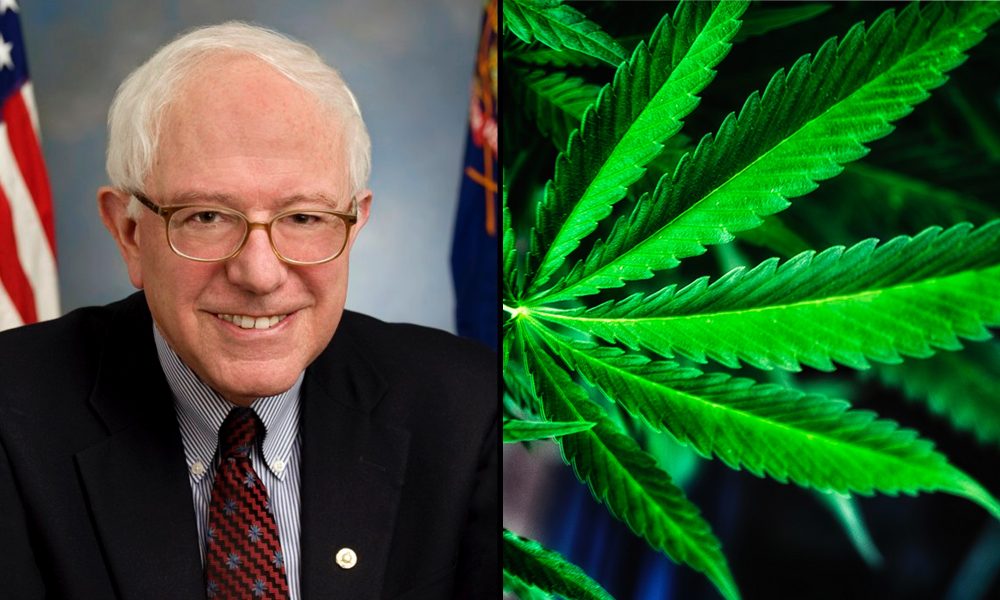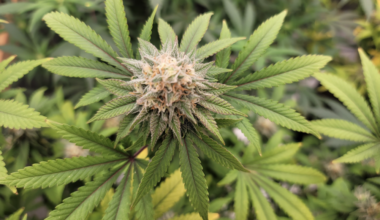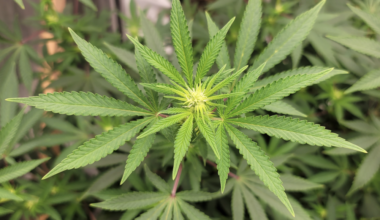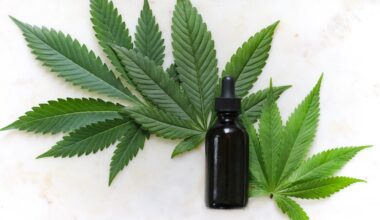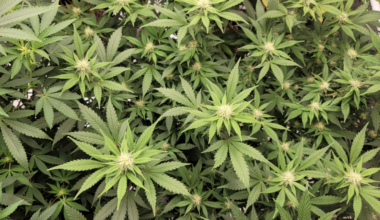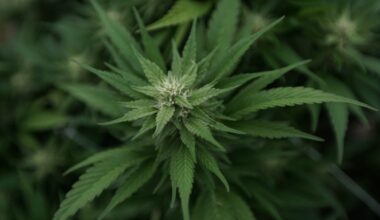Michigan senators on Thursday introduced a bill to legalize the possession, cultivation and delivery of an array of plant- and fungus-derived psychedelics like psilocybin and mescaline.
The legislation, sponsored by Sens. Jeff Irwin (D) and Adam Hollier (D), would amend state statute to exempt people from criminal penalties for such activities so long as they are not “receiving money or other valuable consideration for the entheogenic plant or fungus.”
As such, commercial production and sales would not be legalized under the measure.
The legislation does clarify, however, that people can charge a “reasonable fee for counseling, spiritual guidance, or a related service that is provided in conjunction with the use of an entheogenic plant or fungus under the guidance and supervision of an individual providing the service.”
Irwin said in a tweet that “decriminalization of entheogenic substances makes sense.”
“There is medicinal value. These plants and fungi have religious significance. And these substances are relatively safe and not prone to abuse,” he said. “Let’s stop wasting time and money making more victims of the War on Drugs.”
Decriminalization of entheogenic substances makes sense.
There is medicinal value. These plants and fungi have religious significance. And these substances are relatively safe and not prone to abuse.
Let’s stop wasting time and money making more victims of the War on Drugs. https://t.co/uo5eB655AY
— Jeff Irwin (@JeffMIrwin) September 3, 2021
The list of entheogenic substances that are covered under the proposal includes plants and fungi that naturally produce DMT, ibogaine, mescaline, psilocybin and psilocyn.
Notably, the inclusion of mescaline doesn’t specifically prohibit the substance from being derived from the cacti peyote, despite some concerns about overharvesting that have been raised by indigenous groups and have led to that specific plant being left out of other reform proposals across the country.
—
Marijuana Moment is already tracking more than 1,200 cannabis, psychedelics and drug policy bills in state legislatures and Congress this year. Patreon supporters pledging at least $25/month get access to our interactive maps, charts and hearing calendar so they don’t miss any developments.![]()
Learn more about our marijuana bill tracker and become a supporter on Patreon to get access.
—
Michigan has become a unique hub for the psychedelics movement, with local chapters of the group Decriminalize Nature pushing their city councils to adopt reforms.
The Ann Arbor, Michigan City Council approved entheogenic decriminalization last year—and in July, local lawmakers passed a resolution to officially designate September as Entheogenic Plants and Fungi Awareness Month.
Efforts are also underway in Grand Rapids to enact a policy change for the psychedelic substances.
But the new bill, SB 631, is the latest example of how this local movement is expanding and reaching state lawmakers.
A California senator advanced a bill to legalize the possession of psychedelics through the Senate and two Assembly committees, but he recently put the effort on pause until next year to generate additional buy-in.
Activists in California are also hoping to place an initiative before voters in 2022 to legalize the possession and sale of psilocybin. And a legislative analysis of the proposal that was released this week found that it would reduce costs associated with enforcing laws against the substance.
Oakland and Santa Cruz have already enacted psychedelics decriminalization.
Oregon voters approved a first-of-its-kind initiative last year to legalize psilocybin for therapeutic use alone.
Meanwhile, Denver activists who successfully led a 2019 campaign to make the city the first in the U.S. to decriminalize psilocybin possession have their eyes set on broader reform, with plans in the works to end the criminalization of noncommercial gifting and communal use of the psychedelic.
Massachusetts cities that have enacted the policy change are: Northampton, Somerville and Cambridge. In July, state lawmakers heard testimony about a bill to create a task force charged with studying the implications of legalizing psychedelics like psilocybin and ayahuasca.
The governor of Connecticut recently signed legislation recently that includes language requiring the state to carry out a study into the therapeutic potential of psilocybin mushrooms.
Texas also recently enacted a bill to require the state study the medical benefits of psychedelics for military veterans.
A New York lawmaker introduced a bill in June that would require the state to establish an institute to similarly research the medical value of psychedelics.
In Oakland, the first city where a city council voted to broadly deprioritize criminalization of entheogenic substances, lawmakers approved a follow-up resolution in December that calls for the policy change to be adopted statewide and for local jurisdictions to be allowed to permit healing ceremonies where people could use psychedelics.
After Ann Arbor legislators passed a decriminalization resolution last year, a county prosecutor announced that his office will not be pursuing charges over possessing entheogenic plants and fungi—“regardless of the amount at issue.”
The Aspen, Colorado City Council discussed the therapeutic potential of psychedelics like psilocybin and proposals to decriminalize such substances at a meeting in May. But members said, as it stands, enacting a reform would be more better handled at the state level while entheogens remain strictly federally controlled.
Seattle lawmakers also recently sent a letter to members of a local task force focused on the opioid overdose epidemic, imploring the group to investigate the therapeutic potential of psychedelics like ayahuasca and ibogaine in curbing addiction. In response, the task force on issued a recommendation for the widespread decriminalization of all drugs. The group said psychedelics in particular could represent a promising treatment to address substance abuse disorders and mental health issues.
Meanwhile, Portland, Oregon activists are mounting a push to have local lawmakers pass a resolution decriminalizing the cultivation, gifting and ceremonial use of a wide range of psychedelics.
In a setback for advocates, the U.S. House of Representatives recently voted against a proposal from Rep. Alexandria Ocasio-Cortez (D-NY) that would have removed a spending bill rider that advocates say has restricted federal funds for research into Schedule I drugs, including psychedelics such as psilocybin, MDMA and ibogaine. However, it picked up considerably more votes this round than when the congresswoman first introduced it in 2019.
Report provisions of separate, House-passed spending legislation also touch on the need to expand cannabis and psychedelics research. The panel urged the National Institute On Drug Abuse (NIDA) to support expanded marijuana studies, for example. It further says that federal health agencies should pursue research into the therapeutic potential of psychedelics for military veterans suffering from a host of mental health conditions.
When it comes to broader drug policy reform, Oregon voters also approved an initiative in November to decriminalize possession of all drugs. This year, the Maine House of Representatives passed a drug decriminalization bill, but it later died in the Senate.
In May, lawmakers in Congress filed the first-ever legislation to federally decriminalize possession of illicit substances.
Photo elements courtesy of carlosemmaskype and Apollo.
Medical Disclaimer:
The information provided in these blog posts is intended for general informational and educational purposes only. It is not a substitute for professional medical advice, diagnosis, or treatment. Always seek the advice of your physician or other qualified healthcare provider with any questions you may have regarding a medical condition. The use of any information provided in these blog posts is solely at your own risk. The authors and the website do not recommend or endorse any specific products, treatments, or procedures mentioned. Reliance on any information in these blog posts is solely at your own discretion.
